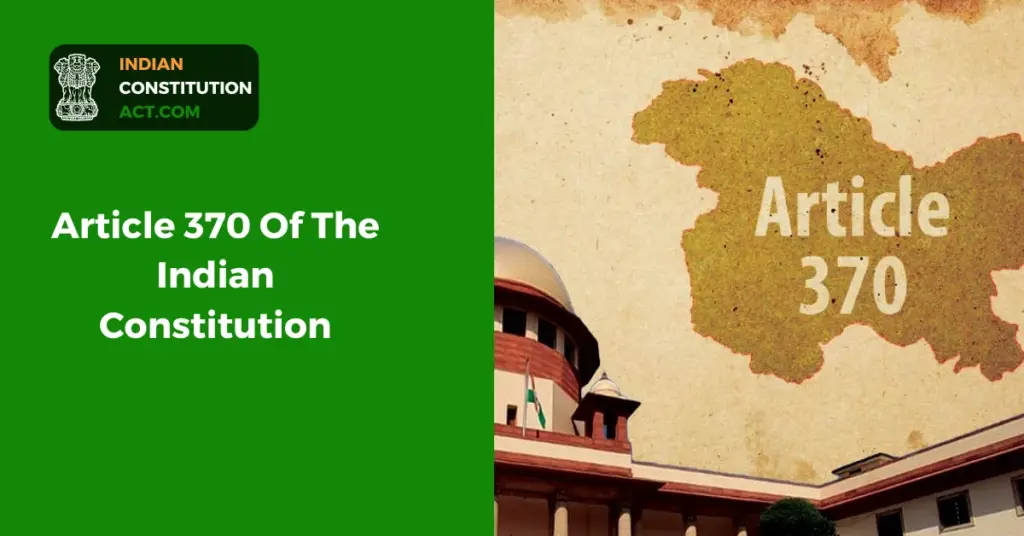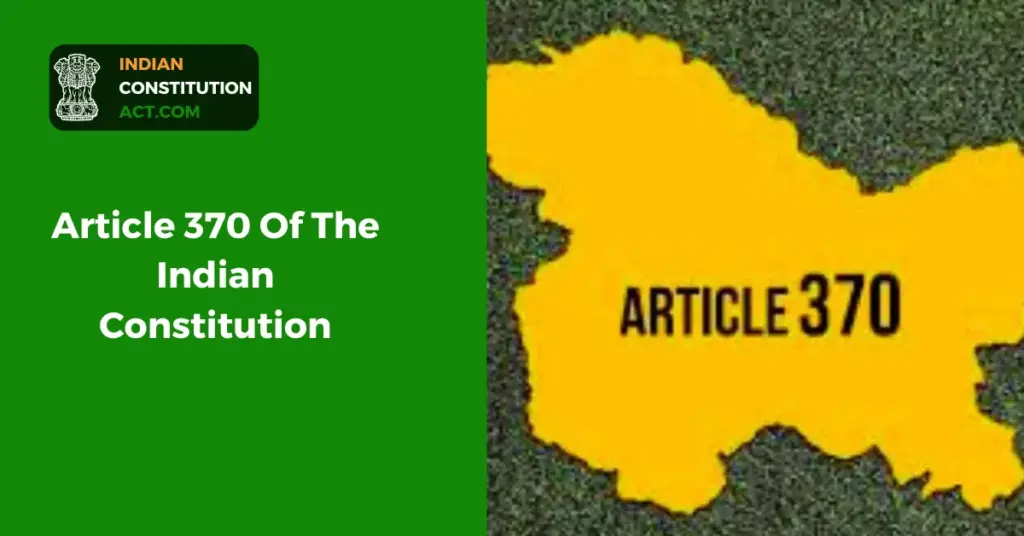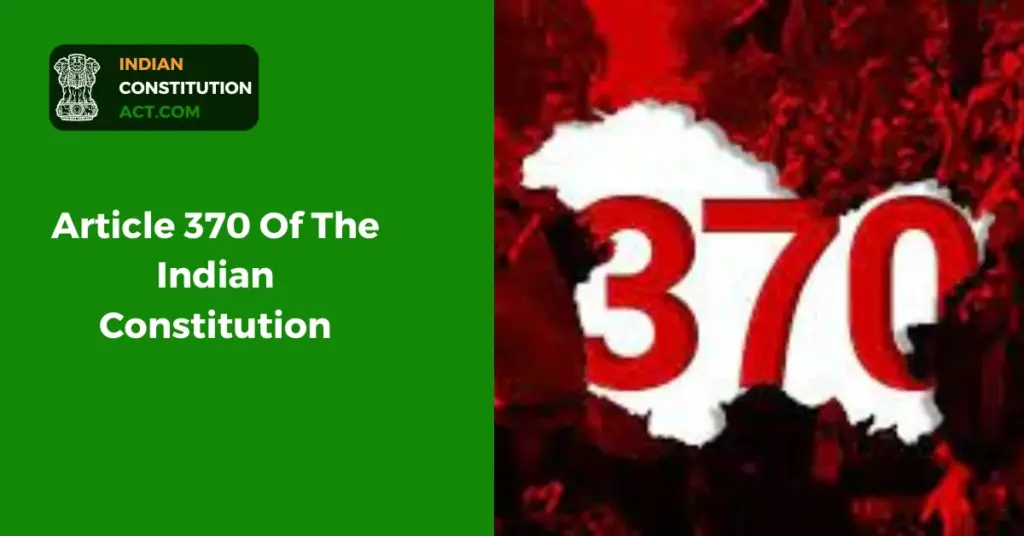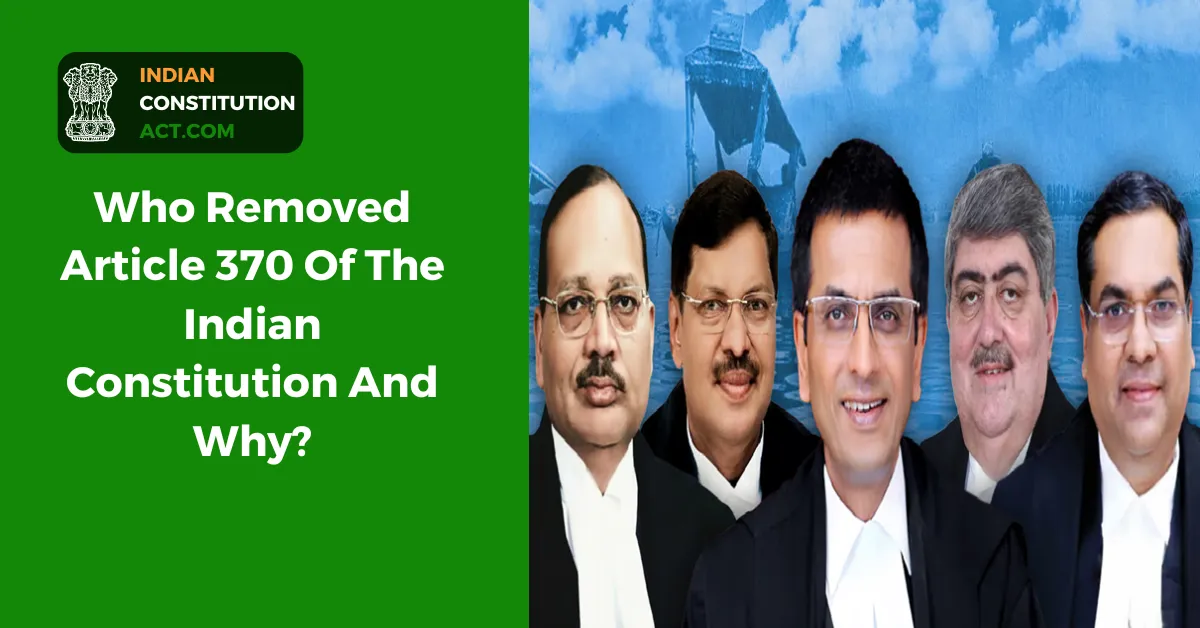Article 370 of the Indian Constitution gave a very special status to Jammu and Kashmir which is a region located in the northern part of the Indian subcontinent. Some years ago it got removed because of some major reasons. It was an article that caused a lot of fights and strikes. To know properly about this article and to know who removed this article, read this blog now.
Table of Contents
Who Removed Article 370 Of The Indian Constitution?

According to the source, a five-judge bench of the Supreme Court of India unanimously upheld the decision of the government of India to abrogate Article 370 of the Indian Constitution on 11th December 2023 officially. The bench claimed that this article was a temporary provision and the president had all the power to revoke it. The bench also stated to the nation that the election should be held in J&K before 30th September 2024.
What Was Article 370 Of The Indian Constitution?
The Article 370 of the Indian Constitution gave a very special status to Jammu and Kashmir. This region is a part of the larger region of Kashmir which has been subjected to a dispute between India, Pakistan, and China since 1947.
J & K was administered by India as a state officially from 17th November 1952 to 31st October 2019. Article 730 of the Constitution of India conferred on it the power to have a separate constitution as a state flag and autonomy of internal administration.
The article was drafted in Part XXI of the Constitution and it was titled Temporary, Transitional, and Special Provisions. This article stated that the Constituent Assembly of Jammu and Kashmir would be empowered to recommend the extent to which the Constitution would apply to the state.
The state assembly could officially abrogate Article 370 altogether in which case all of the Constitution would have applied to the state.
Also read: What Is Article 5 Of The Indian Constitution?
What Does Article 370 Of The Indian Constitution Says?

Article 370 of the Indian Constitution states the temporary provisions concerning the State of Jammu and Kashmir:
(1) Notwithstanding anything in this Constitution,—
(a) the provisions of article 238 shall not apply to the State of Jammu and Kashmir;
(b) the power of Parliament to make laws for the said State shall be limited to—
(i) those matters in the Union List and the concurrent List which, in consultation with the Government of the State, are declared by the President to correspond to matters specified in the Instrument of Accession governing the accession of the State to the Dominion of India as the matters concerning which the Dominion Legislature may make laws for that State; an
(ii) such other matters in the said Lists as, with the concurrence of the Government of the State, the President may by order specify
Explanation.—For this article, the Government of the State means the person for the time being recognized by the President as the Maharaja of Jammu and Kashmir acting on the advice of the Council of Ministers for the time being in office under the Maharaja’s Proclamation dated the fifth day of March 1948;
(c) the provisions of Article 1 and this article shall apply to that State;
(d) such of the other provisions of this Constitution shall apply about that State subject to such exceptions and modifications as the President may by order1 specify:
Provided that no such order which relates to the matters specified in the Instrument of Accession of the State referred to in paragraph (i) of sub-clause (b) shall be issued except in consultation with the Government of the State:
Provided further that no such order which relates to matters other than those referred to in the last preceding provision shall be issued except with the concurrence of that Government.

(2) If the concurrence of the Government of the State referred to in paragraph (ii) of sub-clause (b) of clause (1) or in the second proviso to sub-clause (d) of that clause be given before the Constituent Assembly to frame the Constitution of the State is convened, it shall be placed before such Assembly for such decision as it may take thereon.
(3) Notwithstanding anything in the foregoing provisions of this article, the President may, by public notification, declare that this article shall cease to be operative or shall be operative only with such exceptions and modifications and from such date as he may specify:
Provided that the recommendation of the Constituent Assembly of the State referred to in clause (2) shall be necessary before the President issues such a notification.
